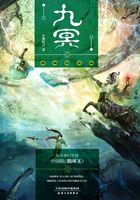Had he faced his thought without metaphors, he would have seen that it was nonsense. So, when he describes his hero, he does not dare to say, "the purer man," or "the happier man," or "the sadder man," for all these are ideas; and ideas are alarming. He says "the upper man," or "over man," a physical metaphor from acrobats or alpine climbers.
Nietzsche is truly a very timid thinker. He does not really know in the least what sort of man he wants evolution to produce.
And if he does not know, certainly the ordinary evolutionists, who talk about things being "higher," do not know either.
Then again, some people fall back on sheer submission and sitting still. Nature is going to do something some day; nobody knows what, and nobody knows when. We have no reason for acting, and no reason for not acting. If anything happens it is right: if anything is prevented it was wrong. Again, some people try to anticipate nature by doing something, by doing anything.
Because we may possibly grow wings they cut off their legs.
Yet nature may be trying to make them centipedes for all they know.
Lastly, there is a fourth class of people who take whatever it is that they happen to want, and say that that is the ultimate aim of evolution. And these are the only sensible people.
This is the only really healthy way with the word evolution, to work for what you want, and to call THAT evolution. The only intelligible sense that progress or advance can have among men, is that we have a definite vision, and that we wish to make the whole world like that vision. If you like to put it so, the essence of the doctrine is that what we have around us is the mere method and preparation for something that we have to create.
This is not a world, but rather the material for a world.
God has given us not so much the colours of a picture as the colours of a palette. But he has also given us a subject, a model, a fixed vision. We must be clear about what we want to paint.
This adds a further principle to our previous list of principles.
We have said we must be fond of this world, even in order to change it.
We now add that we must be fond of another world (real or imaginary) in order to have something to change it to.
We need not debate about the mere words evolution or progress: personally I prefer to call it reform. For reform implies form.
It implies that we are trying to shape the world in a particular image; to make it something that we see already in our minds. Evolution is a metaphor from mere automatic unrolling. Progress is a metaphor from merely walking along a road--very likely the wrong road. But reform is a metaphor for reasonable and determined men: it means that we see a certain thing out of shape and we mean to put it into shape.
And we know what shape.
Now here comes in the whole collapse and huge blunder of our age.
We have mixed up two different things, two opposite things.
Progress should mean that we are always changing the world to suit the vision. Progress does mean (just now) that we are always changing the vision. It should mean that we are slow but sure in bringing justice and mercy among men: it does mean that we are very swift in doubting the desirability of justice and mercy: a wild page from any Prussian sophist makes men doubt it. Progress should mean that we are always walking towards the New Jerusalem. It does mean that the New Jerusalem is always walking away from us. We are not altering the real to suit the ideal. We are altering the ideal: it is easier.
Silly examples are always ******r; let us suppose a man wanted a particular kind of world; say, a blue world. He would have no cause to complain of the slightness or swiftness of his task; he might toil for a long time at the transformation; he could work away (in every sense) until all was blue. He could have heroic adventures; the putting of the last touches to a blue tiger.
He could have fairy dreams; the dawn of a blue moon. But if he worked hard, that high-minded reformer would certainly (from his own point of view) leave the world better and bluer than he found it.
If he altered a blade of grass to his favourite colour every day, he would get on slowly. But if he altered his favourite colour every day, he would not get on at all. If, after reading a fresh philosopher, he started to paint everything red or yellow, his work would be thrown away: there would be nothing to show except a few blue tigers walking about, specimens of his early bad manner.
This is exactly the position of the average modern thinker.
It will be said that this is avowedly a preposterous example.
But it is literally the fact of recent history. The great and grave changes in our political civilization all belonged to the early nineteenth century, not to the later. They belonged to the black and white epoch when men believed fixedly in Toryism, in Protestantism, in Calvinism, in Reform, and not unfrequently in Revolution.
And whatever each man believed in he hammered at steadily, without scepticism: and there was a time when the Established Church might have fallen, and the House of Lords nearly fell.
It was because Radicals were wise enough to be constant and consistent; it was because Radicals were wise enough to be Conservative.
But in the existing atmosphere there is not enough time and tradition in Radicalism to pull anything down. There is a great deal of truth in Lord Hugh Cecil's suggestion (made in a fine speech) that the era of change is over, and that ours is an era of conservation and repose.
But probably it would pain Lord Hugh Cecil if he realized (what is certainly the case) that ours is only an age of conservation because it is an age of complete unbelief. Let beliefs fade fast and frequently, if you wish institutions to remain the same.
The more the life of the mind is unhinged, the more the machinery of matter will be left to itself. The net result of all our political suggestions, Collectivism, Tolstoyani**, Neo-Feudalism, Communism, Anarchy, Scientific Bureaucracy--the plain fruit of all of them is that the Monarchy and the House of Lords will remain.














